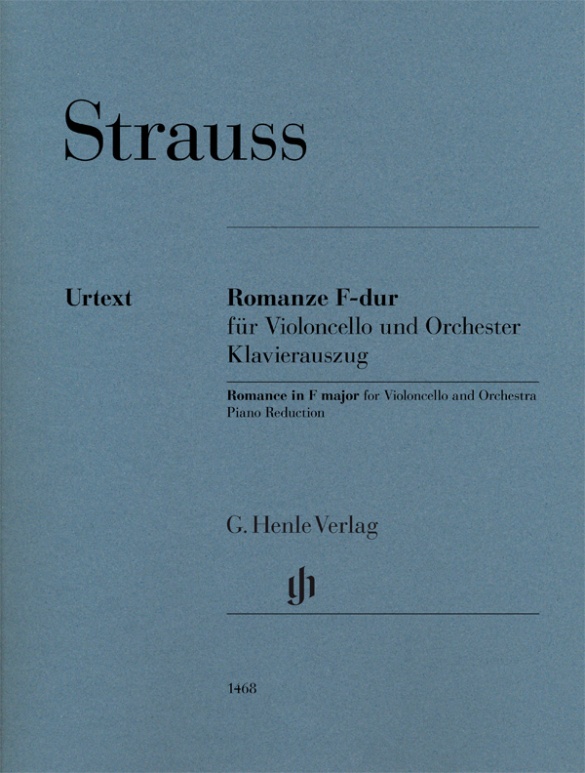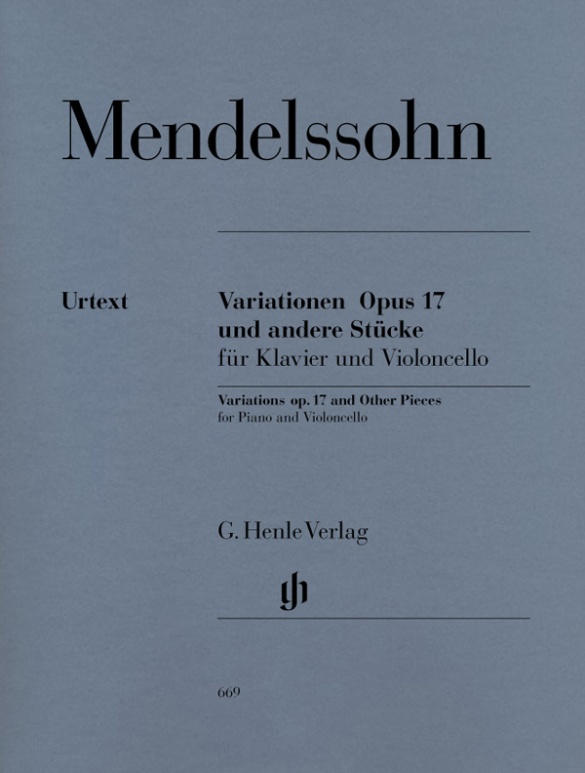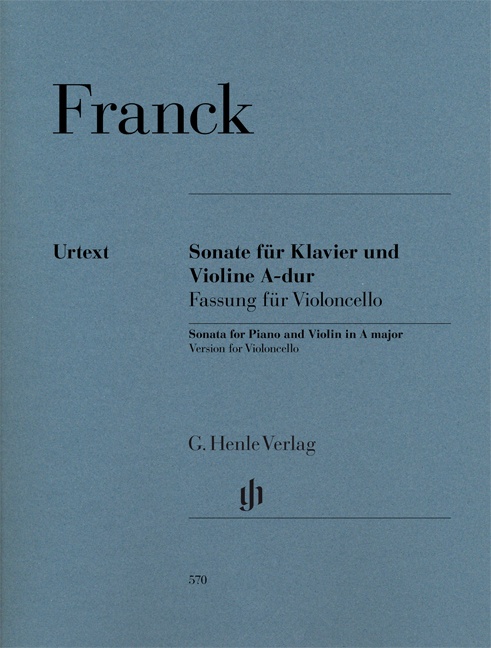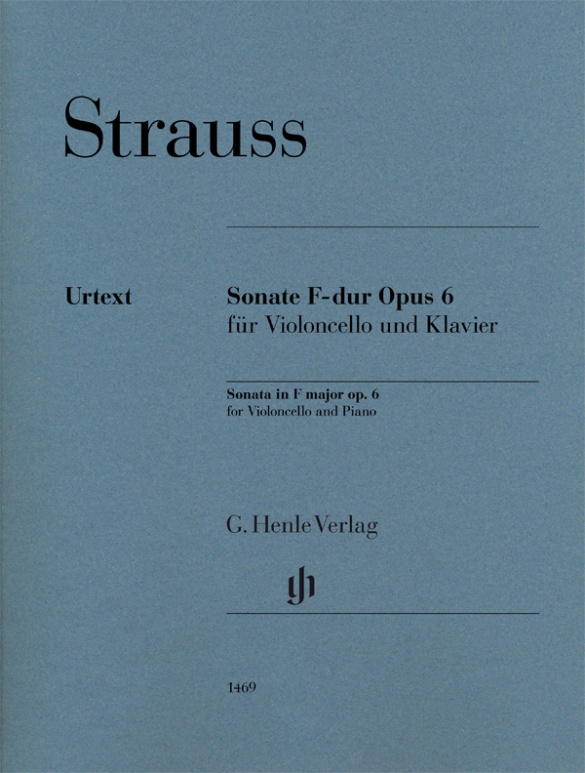

Richard Strauss
Violoncello Sonata F major op. 6
Aside from the Piano Quartet op. 13 and the Violin Sonata op. 18, the Cello Sonata op. 6 numbers among the most mature works of chamber music from Strauss’ early œuvre. The influences of Mendelssohn, Schumann, and Brahms are noticeable, while leaving sufficient space for a very personal tonal language, often with surprising rhythmic and harmonic turns of phrase. Strauss subjected the first version completed in early 1881 to a radical revision over the winter of 1882/83; the opening movement was thoroughly reworked, the two subsequent movements rewritten completely.
It was worth it, because after the premiere in Dresden, the composer wrote to his mother, “My sonata garnered extraordinary acclaim, the applause was enormous, congratulations came to me from all sides.”
Content/Details
About the Composer
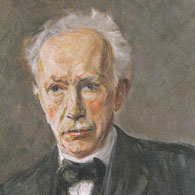
Richard Strauss
One of the most important opera composers of the twentieth century. His oeuvre comprises fifteen operas, nine symphonic poems, instrumental concerti, and a large number of songs. His stage works are marked by their great variety of genre and subject matter.
| 1864 | Born in Munich on June 11, the son of Franz Joseph Strauss, principal horn player in the court orchestra. Receives instruction in piano, violin, and composition. |
| 1885–86 | Conductor at the Meiningen Court Orchestra, initially under the tutelage of Hans von Bülow. |
| 1886 | Music director at the Munich Court Theatre. |
| 1887–1903 | He increasingly devotes himself to the symphonic poem, including “Tod und Verklärung” (“Death and Transfiguration”) in C minor, Op. 24; “Till Eulenspiegels lustige Streiche” (“Till Eulenspiegel’s Merry Pranks”) in F major, Op. 28; “Also sprach Zarathustra,” Op. 30; “Symphonia Domestica” in F major for large orchestra, Op. 53. |
| 1889–94 | Music director in Weimar. First Kapellmeister in Munich in 1894, in Berlin at the Royal Court Opera from 1898–1910. |
| 1905 | Breakthrough with the premiere of “Salome,” Op. 54. |
| 1906 | Beginning of his collaboration with Hugo von Hofmannsthal on the harmonically progressive opera “Elektra,” Op. 58, premiered in Dresden in 1909. |
| 1911 | Sensational premiere in Dresden of “Der Rosenkavalier,” Op. 59, which refers back to operatic tradition and makes him the leading German opera composer. He decides to dedicate himself primarily to operas: “Ariadne auf Naxos,” Op. 60 (1912); “Intermezzo” Op. 72 (1924); “Die ägyptische Helena,” Op. 75 (1928); “Arabella,” Op. 79 (1933); “Die schweigsame Frau,” Op. 80 (1935); “Friedenstag,” Op. 81, and “Daphne,” Op. 82 (1938); “Die Liebe der Danae,” Op. 83 (1944). |
| 1919 | Director of the Vienna State Opera. Premiere there of “Die Frau ohne Schatten,” Op. 65. |
| 1931 | Collaboration with Stefan Zweig. |
| from 1944 | Composition of his last works: Metamorphosen, for 23 solo strings, Oboe Concerto in D major, Four Last Songs. |
| 1949 | Death in Garmisch-Partenkirchen on September 8. |
About the Authors

Peter Jost (Editor)
Dr. Peter Jost, born in 1960 in Diefflen/Saar, read musicology, German and comparative studies at Saarland University in Saarbrücken. He did his PhD in 1988 with a thesis on Robert Schumann’s Waldszenen.
From November 1991 to April 2009 he was a research associate at the Richard Wagner Complete Edition in Munich, and since May 2009 has been an editor at G. Henle Publishers. His Urtext editions comprise predominantly French music of the 19th and 20th centuries, including works by Lalo, Saint-Saëns and Ravel.
Product Safety Informations (GPSR)

G. Henle Verlag
Here you can find the information about the manufacturer of the product.G. Henle Verlag e.K.
Forstenrieder Allee 122
81476 München
Germany
info@henle.de
www.henle.com
Wel aanbevelenswaardig is de fraaie Urtext die editeur Peter Jost voor Henle heeft verzorgd, voorzien van een goede inleiding en een beknopt, maar trefzeker tekstkritisch commentaar. De toevoeging van zowel een ‘schone’ als een door cellist Johannes Moser betekende cellopartij sluit bij die kwaliteit aan.
de nieuwe muze, 2021La partitura definitiva ebbe un grande successo. Questa edizione ci aiuta a rinnovarlo.
Suonare News, 2021Whilst this sonata is already part of the standard cello repertoire, this very approachable edition is likely to be both useful and inspiring.
Stringendo, 2021Auch hier gilt: … wer sich seine Bibliothek aufbaut, möge zu Henle greifen. Dort sind auch die nicht wenigen Druckfehler von Schott korrigiert.
ESTA-Nachrichten, 2022recommendations
autogenerated_cross_selling
Further editions of this title
Further editions of this title


